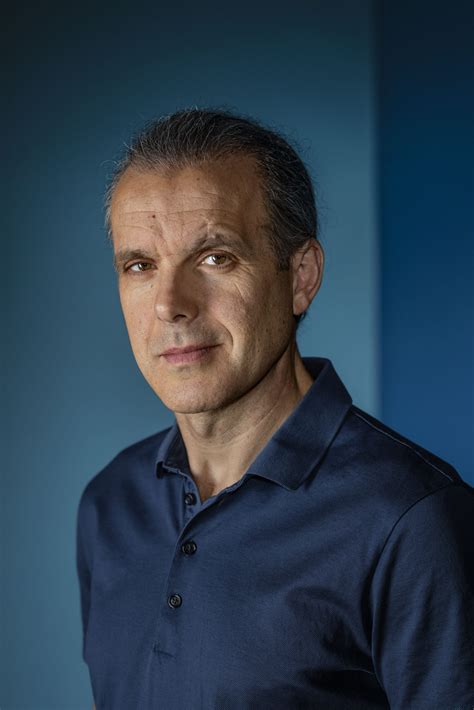A Quote by James Hansen
In view of the immense power of natural weather and climate fluctuations and the great buffering capacity of the Earth, especially the ocean, it is easy to be skeptical about whether small anthropogenic changes of atmospheric composition can have important practical impacts.
Related Quotes
People ask: Why should I care about the ocean? Because the ocean is the cornerstone of earth's life support system, it shapes climate and weather. It holds most of life on earth. 97% of earth's water is there. It's the blue heart of the planet - we should take care of our heart. It's what makes life possible for us. We still have a really good chance to make things better than they are. They won't get better unless we take the action and inspire others to do the same thing. No one is without power. Everybody has the capacity to do something.
Our climate is changing. The Earth's climate has, in fact, warmed by 1.1 to 1.6 degrees Fahrenheit since the industrial revolution. People look at this and say: Oh, that is not very much. In fact, it is very much, and it changes the dynamic. It impacts species. It kills some. It diminishes the carbon sink of the ocean. It does a number of things.
There is no need for the Russian state to hold such large stakes and we do intend to put our plans into practice. It is not about whether we want it or not, it is about this being practical or not and the best timing. In general, it is practical from at least one point of view - from the point of view of structural changes in the economy.
This influential, yet controversial idea requires that the mixture of species on Earth at any moment acts as a collective organism that continuously (yet unwittingly) tunes Earth's atmospheric composition and climate to promote the presence of life... But I'd bet there are some dead Martians and Venusians who advanced the same theory about their own planets a billion years ago.
Climate has always changed. It always has and always will. Sea level has always changed. Ice sheets come and go. Life always changes. Extinctions of life are normal. Planet Earth is dynamic and evolving. Climate changes are cyclical and random. Through the eyes of a geologist, I would be really concerned if there were no change to Earth over time. In the light of large rapid natural climate changes, just how much do humans really change climate?
Please remain calm: The Earth will heal itself - Climate is beyond our power to control...Earth doesn't care about governments or their legislation. You can't find much actual global warming in present-day weather observations. Climate change is a matter of geologic time, something that the earth routinely does on its own without asking anyone's permission or explaining itself.
Here on Earth, we're exposed to asteroids hitting the Earth, eventual changes in the Sun, changes in the Earth's climate, things we're doing to the Earth's climate. If we want to survive, we need to become a multi-planet species. That's further down the road, but the first wave is going to be the explorers.
If we return abruptly to a Miocene-like climate, it's reasonable to think that we would experience a lot of extinctions, and maybe even a mass extinction in the long term. Would the life on Earth be radically different? Of course we can't say for sure, but I think a lot of it would look familiar. Like a lot of people, I worry a lot about whether marine mammals would survive, especially whales. Ocean acidification is one of the major killers in climate change events, and that makes the ocean a very inhospitable place.



































